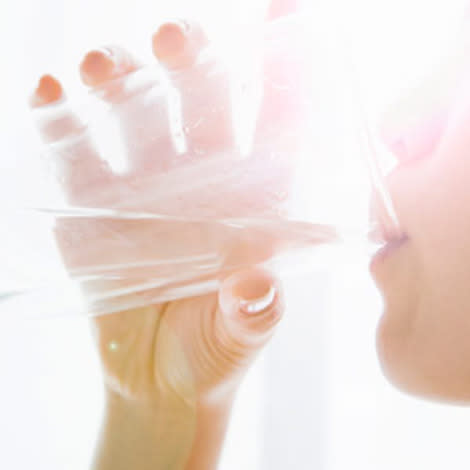8 Food Myths, Busted
Sometimes what we think we know about noshing and dieting couldn't be further from the truth...
#1. Frozen vegetables are less nutritious than fresh ones.
Only if you live on a farm. Just-picked veggies do have more vitamins and minerals, but nutrient levels drop during shipping and storage. And they sink even further if you add on the days that the produce lingers in your crisper. Frozen veggies, on the other hand, are usually picked ripe and immediately flash frozen, so they retain most of their nutrients.
#2. Fat-free salad dressing is your best choice.
Salad veggies are filled with terrific nutrients like lycopene and beta-carotene. But your body can't absorb these without a little help from fat. This doesn't mean you should drown your greens in a rich ranch or blue cheese dressing: A small amount of olive oil will be sufficient. Or you can add low-fat cheese, nuts, seeds, or avocado.
Read More: 101 Easy Ways to Start Losing Weight
#3. Pork is fattening.
It's true that sausage and ribs are loaded with calories, but three ounces of cooked pork tenderloin has only 140 calories -- exactly what you'd find in three ounces of skinless chicken breast.
#4. Foods sweetened with fruit juice are more nutritious.
Nope. Your body can't tell the difference between regular sugar and the highly processed fruit juice concentrate that's used to sweeten many so-called health foods. Nor does juice sweetener offer a significant nutritional advantage. The "extra" vitamins are negligible, but the extra cost for these products may be substantial.
Read More: 33 Products to Get Bikini-Ready
#5. You should drink eight glasses of water a day.

Water is a terrific thirst quencher (and the price is right), but milk and juice -- even coffee, tea and soft drinks - contribute to your water requirements. How much you need varies from person to person (and season to season!), but the best guide is your own thirst.
#6. Fish contains a lot of sodium.
Yes, if the fish is canned, smoked, or pickled. But fresh fish, whether saltwater or freshwater, is naturally low in sodium - a three-ounce serving of Atlantic cod has only 66 milligrams, for example.
Read More: The Best Dark Spot Fighters
#7. Foods with added vitamins and minerals are always better.
It depends. Calcium-fortified orange juice and milk fortified with vitamin D, for instance, are great choices. But tucking some vitamins and minerals into a candy bar or a sugar-loaded drink will not turn these snacks into nutritious foods.
#8. Dry-roasted nuts have fewer calories than oil-roasted.
Technically, they do, but the difference is tiny (seven calories for a one-ounce serving). What does make a difference: Eating too many nuts of any type. Limit your daily nibbles to one ounce and preferably to one of the heart-healthy choices like almonds or walnuts.
For more from Real Beauty:
• 101 Celebrity Hairstyles We Love
• 33 Ways to Make Your Eyes Look Bigger with Makeup
• 25 Summer Smoky Eyes
• 30 Trendy Nail Polishes Under $10
• The Best Beauty Products for Your Astro Sign
Become a fan of Real Beauty on Facebook and follow us on Twitter!
Reprinted with permission of Hearst Communications, Inc.
